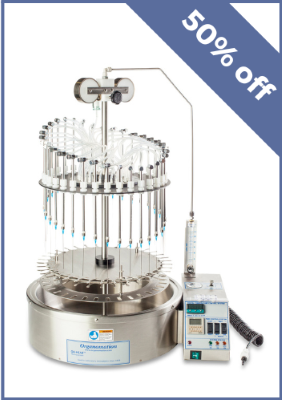
Pre-owned laboratory equipment offers an excellent solution for labs operating on tight budgets, particularly in academic settings where funding often comes from grants or private foundations. This financial constraint can limit the ability to purchase brand-new equipment, making pre-owned or refurbished instruments an attractive alternative. When considering such purchases, it's critical to inquire about the equipment's history and current operational status.
Lab Manager previously published a comprehensive purchasing guide for pre-owned instruments, highlighting seven key questions to ask when evaluating used laboratory equipment. These questions are designed to ensure you gather all available information about the instrument and determine its suitability for your specific application.
We have built upon their seven categories by drafting more specific questions on each topic.
7 Essential Questions for Buying Pre-Owned Instruments
1. Extent of Testing
- Has the equipment undergone full diagnostic testing?
- Were all functions and features individually tested?
- Can you provide a detailed test results report?
- Were any issues identified and addressed during testing?
- Is recent calibration documentation available?
2. Guarantees and Warranties
- What is the warranty duration and coverage?
- Are extended warranty options available?
- What's the process for warranty claims?
- Are there conditions that could void the warranty?
3. Software and Accessories
- Is required software included and up-to-date?
- Are there any associated licensing fees?
- Can software licenses be transferred without additional cost?
- Are all necessary cables, connectors, and adapters included?
- Is any proprietary hardware required for operation?
4. Service History and Documentation
- Is a complete maintenance log available?
- Have there been any major repairs or part replacements?
- Is the original user manual included?
- Are there any active service contracts?
- Can you provide documentation on previous applications or usage?
5. Compatibility
- What are the specific interface requirements?
- Is the instrument compatible with current operating systems?
- Are there known compatibility issues with other lab equipment?
- Can it integrate with laboratory information management systems?
- Are there special power or environmental requirements?
6. Shipping and Additional Costs
- What are the exact shipping costs, including insurance?
- Are there additional customs or import fees for international shipments?
- Is specialized handling required during shipping?
- Are there installation or set-up fees?
- Is on-site training necessary, and is it included in the price?
7. Additional Considerations
- What is the estimated remaining lifespan of the instrument?
- Are replacement parts readily available and at what cost?
- Can you provide references from other labs?
- What is the return policy?
- Are there trade-in or buyback options for future upgrades?
Organomation, one of Lab Manager's vendors for pre-owned equipment, offers a refurbished instrument program that restores used or damaged nitrogen evaporators and extractors. Their refurbished units undergo extensive testing to ensure full working condition and come with a one-year standard warranty covering parts and labor. This program offers savings of up to 50% off list price, providing units that perform like new.
For those interested in Organomation's refurbished instrument program or current inventory, please reach out to sales@organomation.com or use our live chat feature on www.organomation.com.
By thoroughly investigating these aspects, laboratories can make informed decisions when purchasing pre-owned instruments, potentially achieving significant cost savings while still acquiring reliable equipment for their research needs.
The True Cost of Ineffective Sample Preparation
While pre-owned equipment can offer significant savings, it's crucial to consider the broader context of laboratory efficiency, particularly in sample preparation. Recent research reveals that sample preparation is not only time-consuming but also represents a significant portion of analytical expenses.
Sample preparation typically consumes over two-thirds of the total analysis time in many analytical procedures, creating potential bottlenecks in research workflows. The University of Kansas charges $76 per sample for internal users and $118 per sample for external users, demonstrating the substantial resources dedicated to this critical step.
Inefficient sample preparation techniques can lead to:
1. Reduced sample throughput
2. Increased risk of sample contamination or loss
3. Greater variability in results
4. Less time available for data analysis and interpretation
5. Delayed publication of research findings
David Oliva, General Manager of Organomation, emphasizes the importance of addressing these hidden costs:
"At Organomation, we understand the budgetary challenges many research labs face. That's why we've developed a wide range of offerings at different price points, from our refurbished instrument program to our cutting-edge new systems. This diversity allows us to partner effectively with labs of all sizes and budgets, ensuring they can access the equipment they need to advance their research."
By recognizing and addressing the true cost of ineffective sample preparation, researchers can optimize their workflows, accelerate scientific discovery, and ultimately make more efficient use of their limited resources. When considering pre-owned equipment, it's essential to evaluate not just the initial cost savings but also the long-term impact on laboratory efficiency and research quality.
Last Updated: January 7, 2025
